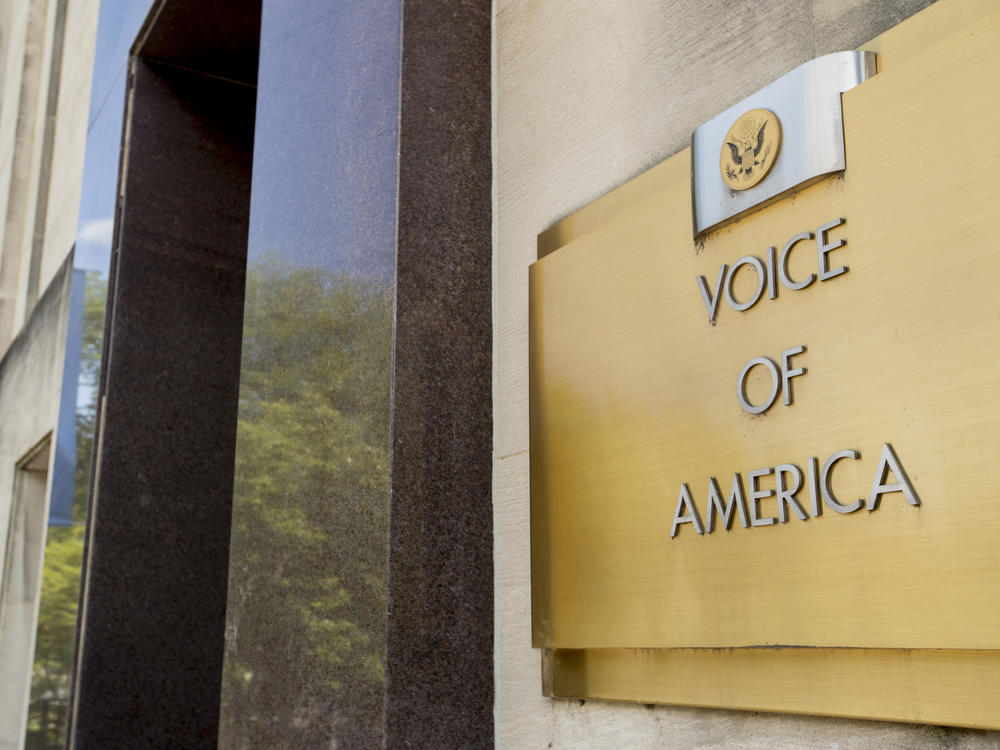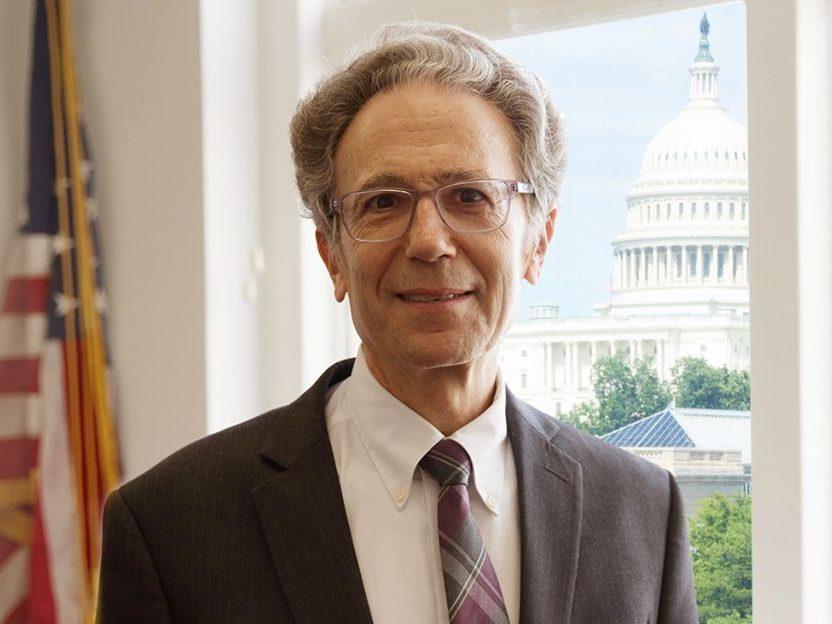Section Branding
Header Content
U.S. Broadcasting Agency Will Not Extend Visas For Its Foreign Journalists
Primary Content
Updated at 2 p.m. ET
Dozens of foreign nationals working as journalists in the U.S. for Voice of America, the federal government's international broadcaster, will not have their visas extended once they expire, according to three people with knowledge of the decision.
Those people — each with current or past ties to the agency — said the new CEO of the U.S. Agency for Global Media, Michael Pack, signaled he will not approve the visa extensions.
"That is horrible," Matt Armstrong, a former member of the governing board over the agency, told NPR. "Many are likely to face repercussions, some very severe." (That board, the Broadcasting Board of Governors, no longer exists.)
A spokesman for the agency did not respond to requests for comment.
Also Wednesday, according to several people with knowledge, Pack had former Radio Free Asia chief Bay Fang fired. Pack had demoted her earlier when firing the presidents of other broadcasters overseen by the agency. The sources asked not to be identified because of a fear of retaliation.
The foreign journalists affected by the visa decision are particularly valued for their language skills, which are crucial to VOA's mission as an international broadcaster covering news in many countries that do not have a free or robust press. One VOA journalist, who asked not to be named because of a fear of retaliation, said it could lead to the departure of more than 100 staffers in the foreign language services.
It was not immediately clear if the decision would be extended to the other broadcasters overseen by the agency.
The decision conforms with the Trump administration's general policy of seeking to limit work visas for the U.S. out of a stated concern they take jobs away from Americans. The policy is opposed by many businesses that rely on the expertise of foreign employees. Voice of America typically hires citizens from other nations with both broadcast and specifically language expertise only when it cannot hire U.S. citizens to fill the jobs.
President Trump nominated Pack, a documentary filmmaker allied with the president, two years ago to be CEO of the international broadcasting agency, but the Senate only confirmed him last month. Upon taking office in June, Pack dismissed the directors of all the agency's divisions: Radio Free Europe/Radio Liberty; Radio Free Asia; Office of Cuba Broadcasting, which oversees Radio and Television Martí; Middle East Broadcasting Networks, which runs Alhurra and Radio Sawa; and the Open Technology Fund, which promotes Internet access around the world, even though the fund's director had planned to retire this month.
The director and deputy director of Voice of America resigned shortly before Pack took office, saying he should be able to appoint his own executives to run the broadcaster.
Trump and his administration have been increasingly critical of VOA. Trump ally and former White House official Steve Bannon, in a 2018 interview with the Los Angeles Times, said, "VOA is a rotten fish from top to bottom." He added, "It's now totally controlled by the deep-state apparatus."
The White House claimed in a formal statement in April that VOA had "amplified Beijing's propaganda" by running an Associated Press article about COVID-19 policies in China.
Prominent Democrats, including House Foreign Relations Committee Chairman Eliot Engel of New York, had warned Pack against politicizing the agency before he took over. Last week, a bipartisan group of senators wrote to Pack to say they would conduct a review of the agency's funding, citing concerns about the dismissals of the broadcasting chiefs.
The agency's previous bipartisan board had issued federal rules on June 11 stating with more specificity the firewall and journalistic standards intended to protect the news services' reports. It now stands as federal policy.
That board, however, was dissolved as Pack took over as CEO.
Disclosure: This story was reported by NPR media correspondent David Folkenflik and edited by NPR's Mark Katkov. Due to NPR CEO John Lansing's prior role as CEO of the U.S. Agency for Global Media, no senior news executive or corporate executive at NPR reviewed this story before it was published.
Copyright 2020 NPR. To see more, visit https://www.npr.org.


